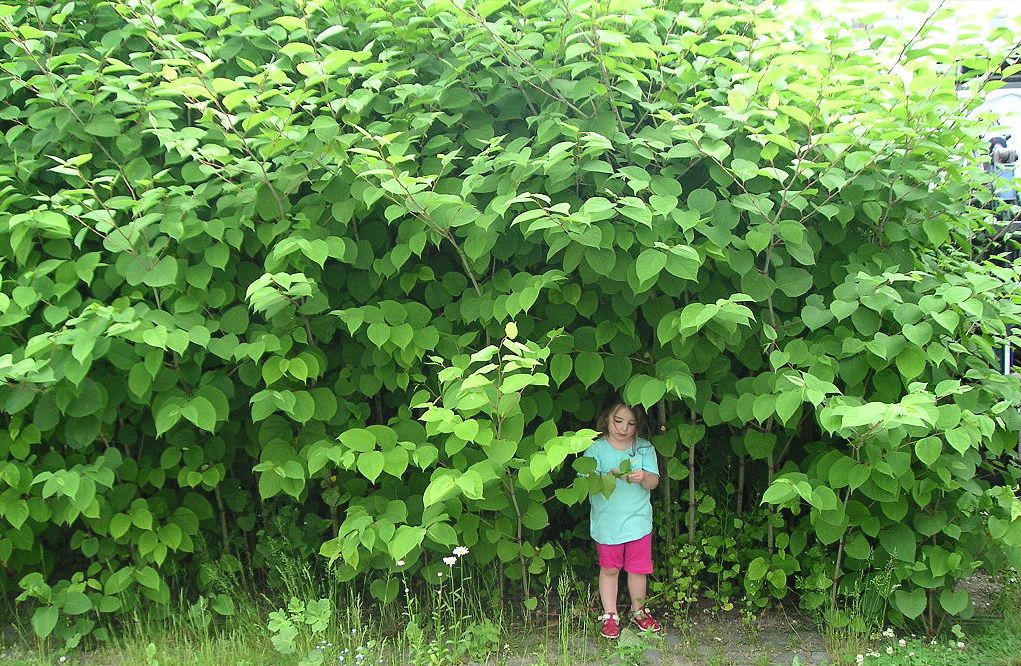Did you know that the problematic Japanese knotweed was first brought into the country in the early 19th century as a decorative plant? Over the years, this weed has been causing mayhem by spreading to all kinds of properties. The UK has become a hot spot for infestation of this weed. It is not only difficult to deal with but it also grows at a quick pace. If left unchecked, the Japanese knotweed has the potential to do serious harm to the structural integrity of the property.
It doesn't come as a surprise that removal of Japanese knotweed has caught the attention of many people. How invasive and destructive this plant can be gauged from the reaction of the Environment Agency which has labeled this species as the most aggressive and invasive plant in the UK. People in the city are fighting battles to get rid of Japanese knotweed from their properties and in many cases, the weed just keeps growing.
Take the example of a UK couple which found that this weed grew to such an extent on their council-owned property that it almost took over their sizable garden. The growth was so quick that it prevented them from entering their own garden. The council told the couple to just cut burn down the weed after cutting it. However, this advice isn't going to solve the problem of Japanese knotweed infestation as there will be new shoots growing up from the roots in no time.
Japanese Knotweed Removal in UK – Things You Should and Shouldn't Do
According to Environetuk.com The first step in your journey is to make sure that you have identified the right weed. It's not easy to figure out the type of weeds growing in your garden and Japanese knotweed is no exception. Take a close look at the ground at the start of the growing season. If there are red colored little shoots popping out of the ground, in spring, you're in trouble. These red colored shoots will turn green soon and start growing up. The leaves of this weed have an almost heart shape and you will also notice white flowers growing on the plant. These flowers grow during the summer months. Japanese knotweed grows really fast and you will be astonished to know that it can grow by up to 20 cm in a single day.
Always remember that it's not easy to get rid of Japanese knotweed. Many have tried and failed in their endeavor. People have done all kinds of things in their war against this weed. They have tried to cut it down, used expensive weed killers and some have even gone to the extent of digging the earth to pluck out the entire structure of the plant. However, these efforts may amount to nothing and your weed problem will persist. In short, if you are planning to go the DIY route when it comes to Japanese knotweed removal, be prepared for a long war against the weed.
If you plan to use herbicides, use only those available at the local garden center. Don't make the mistake of using unlicensed weed killers. These could harm other plants in the garden. Also, unlicensed weed killers are not available for sale for a reason as these might contaminate nearby water sources. Therefore, it is important to only use approved pesticides.
If your plan is to uproot the Japanese knotweed out of the ground, you also need to think of the disposal as incorrect disposal will lead to heavy fines. You are allowed to bury Japanese knotweed on your own ground only at a depth of more than 5 m. Also, you will need to cover it with a material to prevent it from growing up through the material. One example of such material is a root barrier membrane layer. Also, you can't bury any other kind of waste with that.
If you still face the Japanese knotweed problem after doing all of this, you need to call in the experts for help. Professional and reliable companies specializing in Japanese knotweed eradication use powerful herbicides that are not available for sale to the general public. These herbicides are powerful enough to kill the weed. We are a reliable and experienced company specializing in Japanese knotweed eradication. We also offer comprehensive digging out of the Japanese knotweed to make sure nothing remains there for even accidental regrowth. In short, we will take care of all your Japanese knotweed problems.
